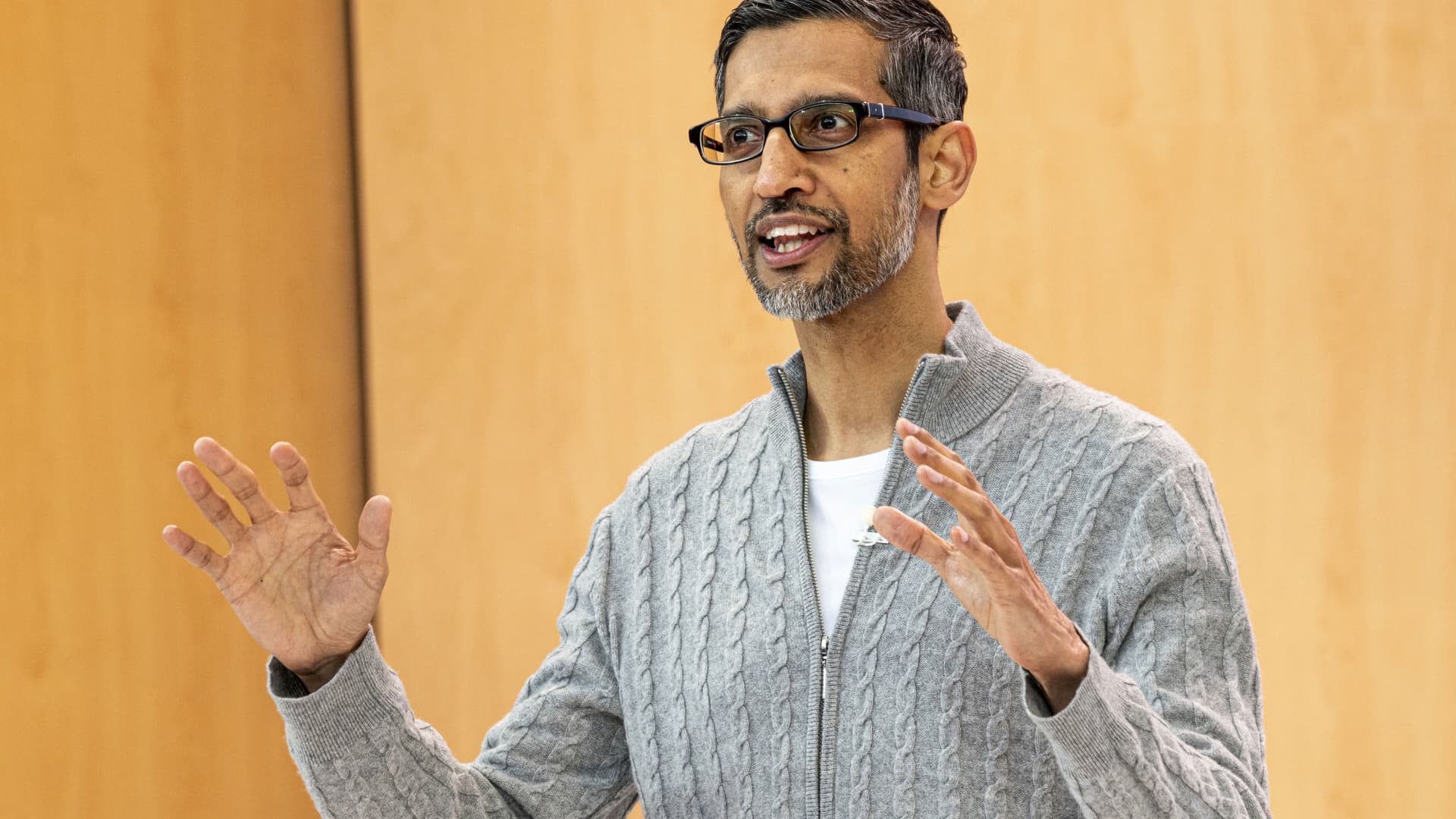The AI Imperative: Google’s Push for an AI-Savvy Workforce
Introduction
The rapid advancement of artificial intelligence (AI) is reshaping industries, redefining business models, and demanding a workforce that can harness its potential. Google, a pioneer in technological innovation, is at the forefront of this transformation. The company’s recent initiatives to cultivate an AI-savvy workforce underscore a broader strategy to enhance efficiency, reduce costs, and maintain a competitive edge in an increasingly AI-driven world. This push reflects not only Google’s commitment to innovation but also the broader imperative for businesses to adapt to the AI revolution.
The Drive for Efficiency and Cost Reduction
Automating Routine Tasks
One of the most immediate benefits of AI integration is the automation of routine tasks. AI-powered tools can handle repetitive and time-consuming activities, such as data entry, report generation, and customer service inquiries. By automating these tasks, Google frees up its employees to focus on more strategic and creative endeavors. For instance, AI can manage large datasets, allowing employees to concentrate on analyzing the insights derived from these datasets rather than spending time on data collection and organization.
Improving Decision-Making
AI’s ability to analyze vast amounts of data quickly and accurately is revolutionizing decision-making processes. AI algorithms can identify patterns, trends, and insights that might be overlooked by human analysts. This capability enables Google to make more informed decisions across various functions, from product development to marketing strategies. For example, AI can predict market trends, optimize supply chains, and personalize customer experiences, all of which contribute to better business outcomes.
Accelerating Innovation
AI is also a catalyst for innovation. By leveraging AI-driven tools, Google can accelerate the innovation cycle. AI can generate new ideas, test hypotheses, and optimize designs. For instance, AI can assist engineers in developing more efficient code, help marketers create personalized campaigns, and support researchers in discovering new insights. This acceleration of the innovation process is crucial for Google to stay ahead of the competition and meet the evolving needs of its customers.
Addressing Competitive Pressures
Keeping Pace with Innovation
The tech industry is characterized by rapid innovation, and companies must stay ahead of the curve to maintain their competitive edge. Google’s push for an AI-savvy workforce ensures that its employees are equipped with the knowledge and skills necessary to develop and deploy cutting-edge AI solutions. This commitment to continuous learning and development is essential for Google to remain a leader in the AI revolution.
Attracting and Retaining Talent
As AI becomes increasingly critical, companies are competing to attract and retain top AI talent. Google’s investment in AI training and development demonstrates its dedication to fostering a skilled workforce. This commitment makes Google an attractive employer for AI professionals, ensuring that the company can attract and retain the best talent in the field.
Responding to Market Demands
The growing demand for AI-powered products and services requires companies to adapt their offerings to meet customer needs. Google’s emphasis on AI proficiency ensures that its employees can develop innovative solutions that address evolving market demands. By prioritizing AI competence, Google aims to bolster its competitive position and secure its place as a leader in the AI revolution.
The Human Element: AI Augmentation, Not Replacement
AI as a Tool
Google views AI as a tool that can augment human capabilities and improve overall performance. By providing employees with access to AI-powered tools and training, Google enables them to accomplish more in less time. This approach recognizes that AI is not a replacement for human workers but a complement that enhances their productivity and creativity.
Focus on Higher-Level Tasks
By automating routine tasks, AI frees up employees to focus on more strategic and creative endeavors that require uniquely human skills, such as critical thinking, problem-solving, and collaboration. This shift allows employees to engage in higher-level tasks that drive innovation and business growth, while AI handles the more mundane aspects of their work.
Continuous Learning
Google encourages employees to embrace continuous learning and development to stay ahead of the curve in AI. This commitment to lifelong learning ensures that employees remain relevant and valuable in the evolving job market. By fostering a culture of continuous learning, Google aims to create a workforce that is both productive and adaptable.
Navigating the Challenges
AI Talent Gap
The demand for AI professionals exceeds the supply, making it difficult for companies to find and hire qualified candidates. Google addresses this challenge by investing in internal training programs and partnering with academic institutions to develop AI talent. This proactive approach ensures that Google has a steady supply of skilled AI professionals to drive its innovation agenda.
Data Privacy and Security
AI algorithms rely on large datasets, raising concerns about data privacy and security. Google is committed to protecting user data and adhering to strict privacy regulations. The company invests in advanced security measures and employs data anonymization techniques to mitigate risks. By prioritizing data privacy and security, Google aims to build trust with its users and stakeholders.
Ethical Considerations
AI raises ethical questions about bias, fairness, and accountability. Google is committed to developing AI responsibly and ensuring that its AI systems are fair, transparent, and accountable. The company has established ethical guidelines and review processes to address these concerns. By addressing ethical considerations proactively, Google aims to harness the full potential of AI while mitigating its risks.
Gartner’s Perspective on AI Readiness
Gartner’s research highlights the importance of AI readiness among leadership teams. A recent Gartner survey revealed that only 44% of CIOs are deemed “AI-savvy” by their CEOs. This finding underscores the need for companies to invest in AI training and development for executives and employees alike.
Executive Buy-In
The success of AI initiatives depends on executive buy-in and support. CEOs and other senior leaders must understand the potential of AI and champion its adoption throughout the organization. By fostering a culture of AI readiness, companies can ensure that AI initiatives are aligned with business goals and drive significant outcomes.
Skills Gap
The skills gap in AI is not limited to technical roles. Executives also need to develop a strong understanding of AI to make informed decisions and guide their organizations effectively. By investing in AI training and development for executives, companies can bridge the skills gap and ensure that AI initiatives are successful.
Business Model Readiness
Many companies’ business models are not yet ready for AI. CEOs and executives must assess their business models and identify areas where AI can create value. By adapting their business models to leverage AI, companies can unlock new opportunities and drive growth.
The Road Ahead: A Pivotal Year
Google views the upcoming year as pivotal, especially regarding AI. This perspective reflects the growing importance of AI in shaping the future of technology and business.
Strategic Investments
Google is likely to continue making strategic investments in AI research, development, and talent acquisition to maintain its competitive edge. These investments will enable Google to stay ahead of the curve and drive innovation in the AI space.
Product Innovation
Google will likely focus on developing new AI-powered products and services that address evolving customer needs and market demands. By leveraging AI to create innovative solutions, Google can meet the changing needs of its customers and stay ahead of the competition.
Partnerships and Collaborations
Google may seek to strengthen its partnerships and collaborations with other companies and research institutions to accelerate AI innovation. By collaborating with other organizations, Google can leverage external expertise and resources to drive AI advancements.
Conclusion: Embracing the AI Revolution
Google’s push for an AI-savvy workforce is a testament to the transformative power of artificial intelligence. By prioritizing AI skills, fostering a culture of continuous learning, and addressing the challenges associated with AI adoption, Google is positioning itself to lead the AI revolution. As AI continues to evolve, companies that embrace it strategically and empower their employees will be best positioned to thrive in the future. This isn’t just about keeping up; it’s about shaping the future of work and innovation. The companies that succeed will be those that view AI not as a threat but as an opportunity to redefine their operations, enhance their capabilities, and drive meaningful impact. The AI imperative is clear: adapt, innovate, and lead.





